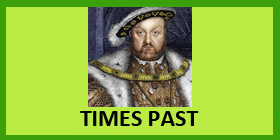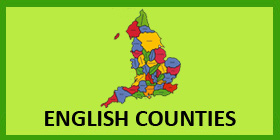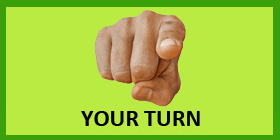




Back to the Into The 21st Century calendar



 …....on 23 June 2016 we all trotted off to our local polling station to vote. All the main party leaders campaigned for us to stay and most political experts thought that, although the vote could be a bit close, the “remainers”, those who wanted to remain funnily enough, would beat the leavers, those who...........oh you guessed.
…....on 23 June 2016 we all trotted off to our local polling station to vote. All the main party leaders campaigned for us to stay and most political experts thought that, although the vote could be a bit close, the “remainers”, those who wanted to remain funnily enough, would beat the leavers, those who...........oh you guessed.
History, as I have often told you, is a mixture of facts, that can be proved, and opinion given by writers and scribes over the years. In true tradition I will now give you my opinion, after telling you the facts. The simple fact is that we voted, by 51.89% to 48.11% to leave. Nearly everyone was surprised, even those who had campaigned and voted to leave. David Cameron resigned and was replaced by Theresa May who had also been a remainer.
 Then the problems started. No country had ever left the EU before so no one knew what to do. There were some rules, but how you went about leaving was a blank piece of paper and a lot of blank faces were staring at it.
Then the problems started. No country had ever left the EU before so no one knew what to do. There were some rules, but how you went about leaving was a blank piece of paper and a lot of blank faces were staring at it.
Now for my opinion on why it happened and why we now have a major problem. Firstly, the referendum asked a stupid question. The question was “should the United Kingdom remain a member of the European Union or leave the European Union?” This is a bit like a parent asking a naughty child, “do you want to go to your room.” If the answer is no, great but if the child says yes what does the parent do? And supposing, after hearing a yes, the parent says OK your room is now in Syria. Oh, I should add here, don't try this at home. But, seriously, it is a silly question.
 The referendum question was just as silly. If you say remain it means, quite simply, that you want to stay in the EU exactly as it is because it gives you no option to say yes I want to remain but could we tell the EU we would like to...................whatever you don't like. If you say leave then we leave whether we can negotiate anything or not.
The referendum question was just as silly. If you say remain it means, quite simply, that you want to stay in the EU exactly as it is because it gives you no option to say yes I want to remain but could we tell the EU we would like to...................whatever you don't like. If you say leave then we leave whether we can negotiate anything or not.
If David Cameron and his advisors and ministers had thought about things they would have given more options in the questions. I am sure, no I can't prove it, but I am fairly sure that if we had voted to stay but said we wanted to control our immigrants more, the EU would have considered that. The simple fact is that the EU is weaker without the UK.
We also gave ourselves no options when voting leave. The rules say that if you tell us you're leaving then you must go in 2 years whether you have worked out how we will all get on in the future or not. We officially told the EU we were going to leave on March 29 2017. On March 29 2019 we will be gone. Probably. Perhaps. Maybe.
My own opinion is that any organisation with 28 different countries as members, 28 different cultures and 28 different hopes for the future is never going to be able to work properly if it has very strict rules. The EU started out as a trading group. If it had stayed like that it could have worked.
Anyway Theresa May was now in charge of our negotiations to leave. In my view she is trying to negotiate an impossibility. History is all about the past
so it is dangerous to predict the future. Some time in 2019 we will all be able to look at things once they have happened....... or not.
UPDATE JUNE 2019
 Owlbut and I were right to wonder if we would leave on 29 March 2019. We didn't. Parliament did not approve, on 3 separate occasions, the deal Theresa May had negotiated with the EU. It is possible to leave without a deal but most people agree that would be bad for our economy. The problem arose because once we leave the EU, borders would be in place between the United Kingdom and all other EU countries. That would mean, without a deal, that both people and trade would have rules to follow before crossing those borders. Trade would also be subject to tariffs, which are essentially taxes on goods entering a country.
Owlbut and I were right to wonder if we would leave on 29 March 2019. We didn't. Parliament did not approve, on 3 separate occasions, the deal Theresa May had negotiated with the EU. It is possible to leave without a deal but most people agree that would be bad for our economy. The problem arose because once we leave the EU, borders would be in place between the United Kingdom and all other EU countries. That would mean, without a deal, that both people and trade would have rules to follow before crossing those borders. Trade would also be subject to tariffs, which are essentially taxes on goods entering a country.
However, the problem is even worse because the so-called Good Friday agreement between the UK and Ireland was based on there always being an open border between the two countries. Without a deal, this border would be closed and the peace deal might be threatened. You can read a bit more about that deal at the bottom of this page.
Theresa May then asked for an extension of our leaving date until 12 April 2019 and the EU agreed. In those two weeks nothing much changed so Theresa May asked for another extension until 31 October 2019. Once again the EU agreed to give this further extension.
 Then the Conservative party, the government, decided a new leaving date was needed but this time it was the date Theresa May should leave as Prime Minister. She resigned as leader of the Conservative Party and as PM on June 7 and then the Conservative party needed to find a new leader who would automatically be Prime Minister. The selection of the new leader, ten people put themselves forward, would first be chosen by Conservative MPs, those elected to Parliament. They would vote for the candidates with the one with the fewest votes dropping out each time, and then, when just two candidates remained, the choice would be made by registered members of the Conservative Party. This is roughly 140,000 people.
Then the Conservative party, the government, decided a new leaving date was needed but this time it was the date Theresa May should leave as Prime Minister. She resigned as leader of the Conservative Party and as PM on June 7 and then the Conservative party needed to find a new leader who would automatically be Prime Minister. The selection of the new leader, ten people put themselves forward, would first be chosen by Conservative MPs, those elected to Parliament. They would vote for the candidates with the one with the fewest votes dropping out each time, and then, when just two candidates remained, the choice would be made by registered members of the Conservative Party. This is roughly 140,000 people.
You may think it a bit weird that our next leader is chosen by about a quarter of a percent of the voters in our country but Theresa May was elected without any votes from members of the public so you shouldn't be surprised. As I write this we are now down to two candidates Jeremy Hunt and Boris Johnson. The result should be known at the end of July 2019. Watch this space to find out the facts or read the newspapers to listen to their opinion and a bit of gossip.
UPDATE – 31 January 2020 – 11.01pm
At 11.00pm tonight the United Kingdom formally left the European Union. We joined, as you can read here on 1 January 1973. Except that nothing will change for the next eleven months. That is because both sides have agreed something called a transition period during which everything will stay the same while they work out their future relationship. The UK will still pay money to the EU, still abide by EU laws and people will still be able to move freely between European Union member countries and the UK. The UK government have said the transition period will end on 31 December 2020 and there is no way it can extended.
It means that in these eleven months the EU and the UK will have to agree, among other things, a trade deal. At the moment any goods going between any EU countries can do so without the addition of any taxes, usually called tariffs. This will no longer be true. A new agreement on what may be taxed and what won't be taxed will be required. There may also have to be custom checks at any border between the EU and the UK.
 Also the EU has certain rules about competition within its members. As an example a government of a country within the EU cannot unfairly help an industry in their country to compete against the same industries in other countries. One of the things that worries the EU is that if the UK is allowed to continue with a trade deal with little or no tariffs, it could now offer help to some industries to make them more competitive. Just in case you get bored and start listening to news about these negotiations over the next few months, this is known as having a level playing field. This also applies to rules about the environment and the social economy such as workers' rights.
Also the EU has certain rules about competition within its members. As an example a government of a country within the EU cannot unfairly help an industry in their country to compete against the same industries in other countries. One of the things that worries the EU is that if the UK is allowed to continue with a trade deal with little or no tariffs, it could now offer help to some industries to make them more competitive. Just in case you get bored and start listening to news about these negotiations over the next few months, this is known as having a level playing field. This also applies to rules about the environment and the social economy such as workers' rights.
So how did we finally leave. You can see that when I wrote the previous update the Conservative party were choosing a new leader. Boris Johnson won the votes and became Prime Minister, the 55th different one, on 24th July 2019. Over the next few months not much changed. The main difference was that Johnson was definitely in favour of leaving but still Parliament kept voting against it.
Eventually it was agreed we would have a general election and once again the result was a surprise. The election was held on December 12th and although most people expected a narrow Conservative victory, they actually won with a majority of 80 seats over all other parties. Boris Johnson could now push through the leaving Europe legislation with no problems. He did and that's how we left. We now have to wait and see firstly if we can negotiate a new relationship and secondly whether leaving will be a good or bad thing for the UK. Watch this space.
The picture below shows the British Prime Minister, Boris Johnson, signing the Withdrawal Agreement in Downing Street and Ursula von der Leyen, the President
of the European Commission, signing her copy in Brussels. Luckily they both could write.


Forward to 2017AD

